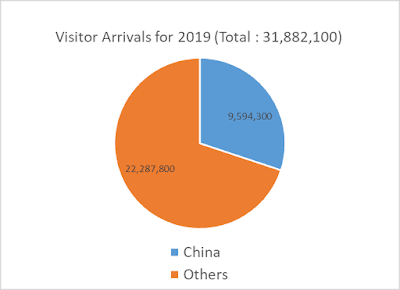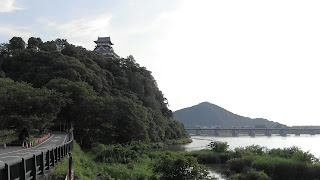Japanese government scrambles to prevent spread of coronavirus
In response to the World Health
Organization's declaration of a public health emergency on a novel coronavirus
pneumonia started in Wuhan, China, the Japanese government has decided to
refuse foreign nationals who have stayed in Hubei, China entering the country.
The decision is based on the Immigration Control Law, and is the first time to apply on a specific country or region.
For the time being, foreign nationals who have stayed in Hubei within 14 days before applying for immigration or foreigners who have a Chinese passport issued in Hubei will not be allowed the entry in principle.
The measure has been implemented since midnight on February 1. Patients of the disease are also forced to stay in the hospital and prohibited from working.
In the Chubu region, multiple cases of infection have been found and numerous inquiries have been sent to telephone consultation counters set up by the local governments.
Those governments also provide consultation on management and finance for small and medium-sized businesses.
In recent years, the number of foreign tourists has increased significantly, and greatly contributed the Japanese economy to grow.
In particular, tourists from China have the largest share, which is more than 30% of the total, about 9.6 million in 2019.
It is feared that the continuing spread of infection will significantly decelerate the Japanese economy.
The decision is based on the Immigration Control Law, and is the first time to apply on a specific country or region.
For the time being, foreign nationals who have stayed in Hubei within 14 days before applying for immigration or foreigners who have a Chinese passport issued in Hubei will not be allowed the entry in principle.
The measure has been implemented since midnight on February 1. Patients of the disease are also forced to stay in the hospital and prohibited from working.
In the Chubu region, multiple cases of infection have been found and numerous inquiries have been sent to telephone consultation counters set up by the local governments.
Those governments also provide consultation on management and finance for small and medium-sized businesses.
In recent years, the number of foreign tourists has increased significantly, and greatly contributed the Japanese economy to grow.
In particular, tourists from China have the largest share, which is more than 30% of the total, about 9.6 million in 2019.
It is feared that the continuing spread of infection will significantly decelerate the Japanese economy.




Comments
Post a Comment